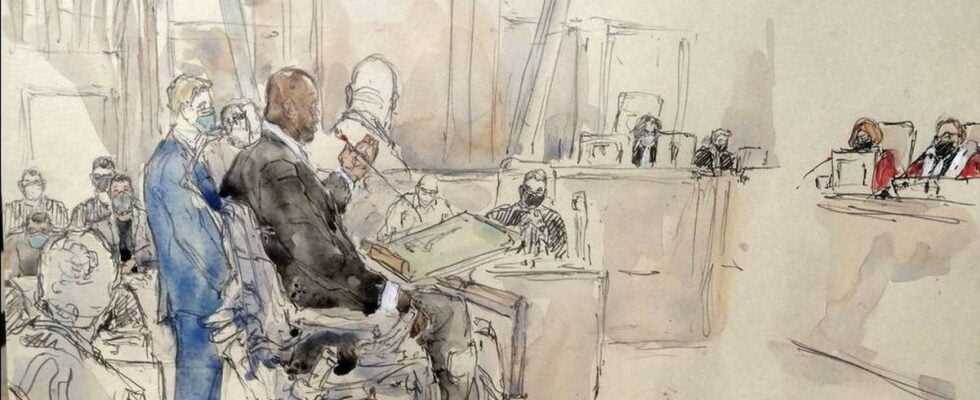Mohamed Bakkali continuing to wallow in silence, the special assize court heard in his place Raphaële C., the former director of the Fleury-Mérogis radicalization assessment district (QER), where Muhammad was detained Usman
It is the accused of the trial of the attacks of November 13 who did nothing, saw nothing, knew nothing… But the sincerity of the Pakistani Muhammad Usman was seriously questioned Thursday after the testimony of a witness, yet cited by the defense.
Mohamed Bakkali, the alleged logistician of the attacks of November 13, continuing to wallow in silence, the special assize court heard in his place Raphaële C., the former director of the radicalization assessment district (QER) of Fleury-Mérogis, where Muhammad Usman was detained from mid-February to mid-March 2020.
An “influenceable” man
At the helm, Raphaële C. describes a “correct” and “respectful” man, “sometimes easily influenced”. Muhammad Usman has “weak religious knowledge”, she explains. He does not seem “rooted in a violent ideology”.
During his interrogation on Tuesday January 25, Muhammad Usman tried to minimize his involvement in Daesh. If he admitted having joined Syria in 2015 and having gone to Fallujah in Iraq, he maintained that he had “done nothing” there. Returning to Syria in Raqqa, the “capital” of Daech, he will be recruited, with the Algerian Adel Haddadi and the two Iraqi suicide bombers from the Stade de France, to commit a suicide attack in France. Asked about this, Muhammad Usman remained vague, assuring that he had never fought and did not know why he had been recruited.
Muhammad Usman failed to reach France with the other members of the commandos. Arrested in Greece with Adel Haddadi in October 2015, he was detained there for a month before returning to the road and being arrested again in Austria in December, a month after the attacks.
“Muhammad Usman carried many words of regret”
For Raphaële C., the accused has a rather “immature, childish” vision of the world. He is a “naive” who “could have made easy prey for Daesh”. Muhammad Usman has expressed his “total disengagement” from Daesh ideology, she continues. “Muhammad Usman carried many words of regret. »
“Just a guess”
“In what language did you speak with Muhammad Usman”, wants to know the president. In French, answers the witness. “Due to the health crisis, we did not have an Urdu interpreter,” she says. However, if Muhammad Usman speaks a little French, which he learned in detention, his interrogation showed that it was difficult for him to do without an interpreter to express himself.
Advocate General Camille Hennetier would like to know how the sincerity of an inmate at the QER is determined. “By the facts observed, the telephone calls, the letters, the exchanges with the families”, details Raphaële C. “But, in the case of Muhammad Usman, there was not all that! No visiting rooms, no letters… How eight interviews in French with him allow you to attest to his sincerity? “, insists the Advocate General. “We were on the assumption,” admits the witness.
Lawyers for the civil parties rush into the breach. How can we say that the accused has little religious knowledge when he studied six years in a madrasa (Koranic school), wonders Mand Sylvie Topaloff.
“It is information transmitted by an imam who saw him in an interview”, replies the witness, who confirms that he did not have access to the accused’s file. “The madrasas are schools of indoctrination which congratulate themselves on having trained the Taliban cadres”, insists the lawyer. “Did you believe him? Do you believe him when you say he’s in a state of repentance? “, continues the lawyer. “No, it’s a hypothesis”, repeats the witness once again.
Another lawyer for the civil parties, Antoine Casubolo-Ferro, wonders about the “influenceable” aspect of the accused. “What does that tell us about his dangerousness once he is free? “, he asks. Raphaële C. acknowledges that her report only concerns the period of detention and not the rest. “What credence can be given to the QER report on Muhammad Usman? “, continues M.and Casubolo-Ferro. “We are not here to seek the truth,” concedes the witness.
